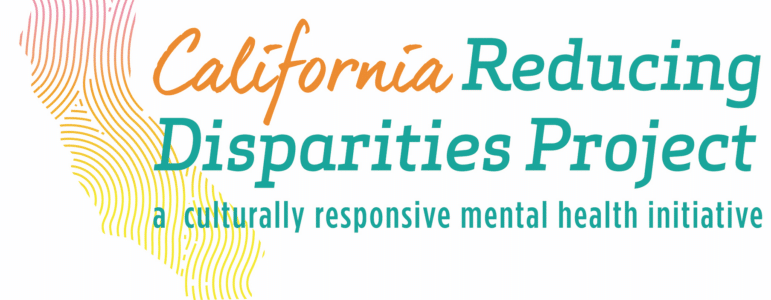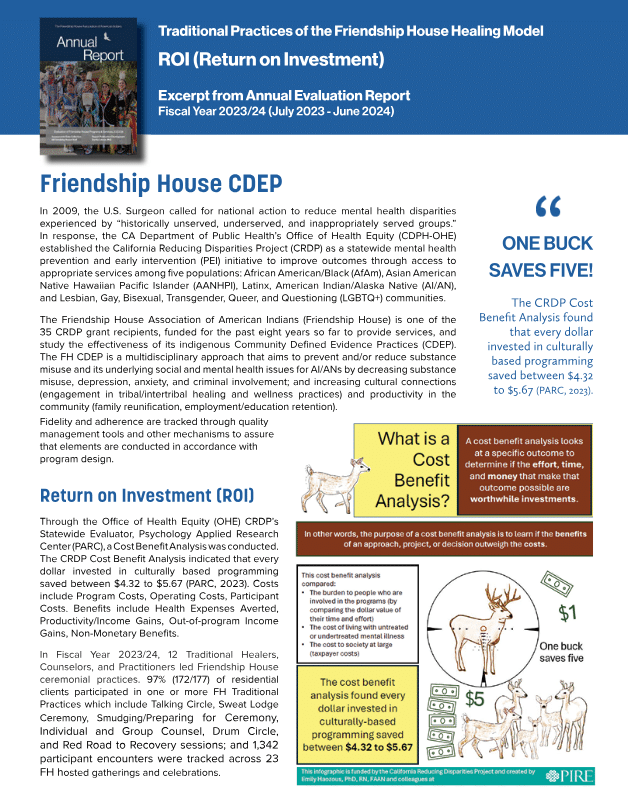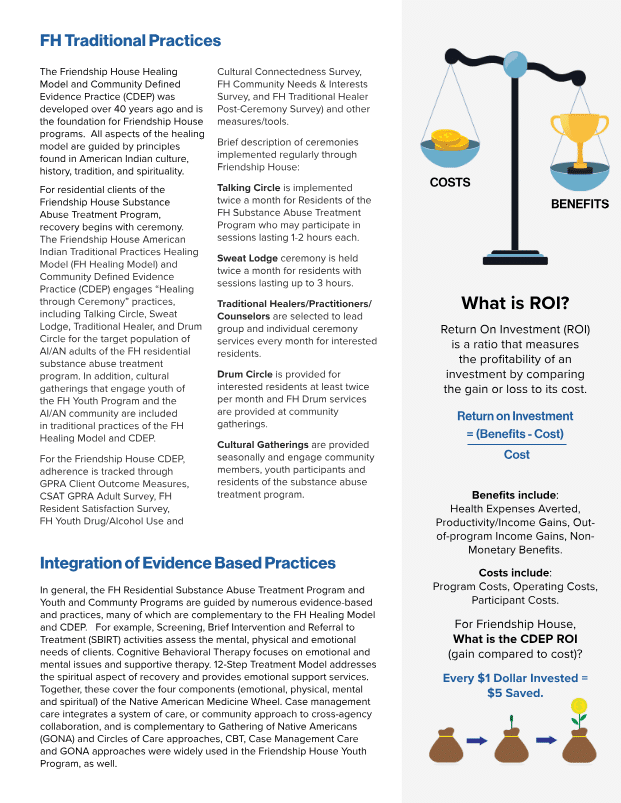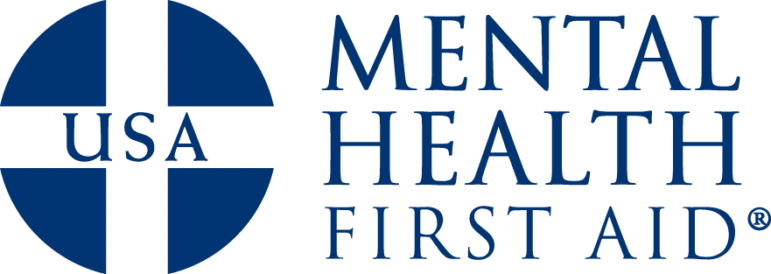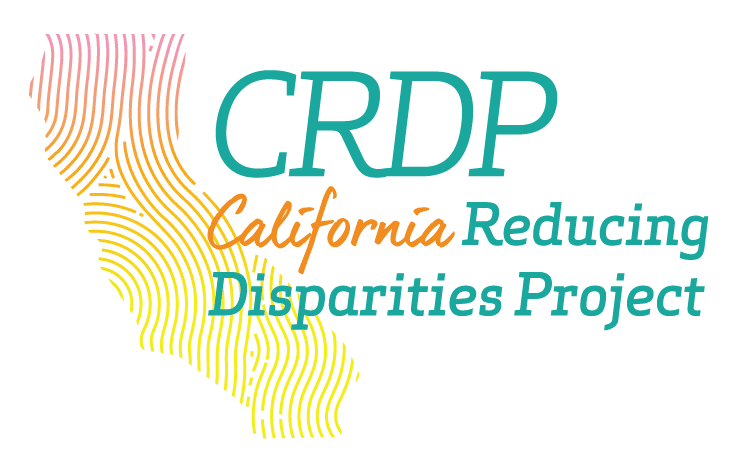About Us
Friendship House Association of American Indians (Friendship House or FH) is a 501(c) (3), nonprofit, community-based organization and was established in 1963 to serve American Indian/ Alaska Natives (AI/AN) who were relocated from their reservations to the San Francisco Bay Area. Friendship House promotes healing and wellness in the AI/AN (American Indian/Alaska Native) community by providing a continuum of services that are strength-based and trauma-informed to improve the physical, mental, emotional and spiritual well-being of American Indians across the lifespan.
Friendship House operates three program facilities: The Friendship House American Indian Healing Center, an 80-bed adult men and women residential substance abuse treatment facility located in San Francisco; the Friendship House American Indian Lodge, a 9-bed facility for women and their children located in Oakland; and the Friendship House Youth Program, an afterschool youth center, located in San Francisco. San Francisco Bay Area counties are the primary geographic areas served and home to many California tribes.
Mission
The mission of Friendship House is to promote healing and wellness in the Native American community by providing high quality substance abuse prevention, treatment, and recovery services while integrating cultural and spiritual traditions. The Friendship House Healing Model was developed over 40 years ago and is the foundation for Friendship House programs. All aspects of the healing model are guided by principles found in American Indian culture, history, tradition, and spirituality. For residential clients of the Friendship House Substance Abuse Treatment Program, recovery begins with ceremony. The FH Healing Model and CDEP engages “Healing through Ceremony” practices, for the target population of AI/AN adults of the FH residential substance abuse treatment program. In addition, cultural gatherings that engage youth and young adults of the FH Youth Program, and the AI/AN community are included in traditional practices of the FH Healing Model.
Approach to Programming
Our culturally responsive mental health project focuses on the expansion and study of our Friendship House Healing Model and Community Defined Evidence Practice (CDEP). The Friendship House Healing Model focuses on healing through strength-based and trauma-informed practices for the population of American Indian/Alaska Native (AI/AN) adults, youth and children. Regular ceremonial activities associated with the Friendship House Healing Model include:
- Drum Circle is a recent addition to the FH CDEP and is implemented weekly on an informal basis for residents.
- Talking Circle is implemented twice a month for residents of the FH Treatment Program who may participate in sessions lasting 1-2 hours each.
- Sweat Lodge Ceremony is Implemented twice a month for residents and once a month for youth program participants, with sessions lasting up to 3 hours.
- Traditional Healers are selected to lead group and individual ceremony services for interested residents and youth program participants every month. Traditional counselors and practitioners provide in-house services on a weekly basis for residential clients.
- Cultural Gatherings are provided seasonally and annually and engage community members, youth participants and residents of the substance abuse treatment program.
In Fiscal Year 2023/24, 12 Traditional Healers/ Counselors/Practitioners led Traditional Healing Practices at Friendship House. 97% (172/177) of residential clients of the substance abuse treatment program participated in one or more FH Traditional Practices. “Our clients come to the residential treatment program in a great deal of emotional pain, and many have never addressed their personal trauma. Many have not had the opportunity to participate in their own tribal practices, so we start from the beginning, teaching them how to enter a ceremonial space, how to smudge, and how to talk to Creator” (Patricia Shirley, FH Traditional Counselor).
Who We Are
Team/staff
Media
FRIENDSHIP HOUSE CDEP PUBLICATIONS
Our Team
Principal contact persons
Dorthy Lebron, PhD, Principal Investigator
dorthyl@friendshiphousehealing.org
Karen Waukazoo, Project Director
karenw@friendshiphousehealing.org
general contact
Website:
https://www.FriendshipHouseHealing.org/
Phone:
(415) 865-0964
Social media
Facebook Twitter
LOCAL EVALUATION REPORT
Friendship House Association of American Indians, Inc.—City and County of San Francisco
